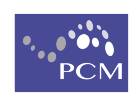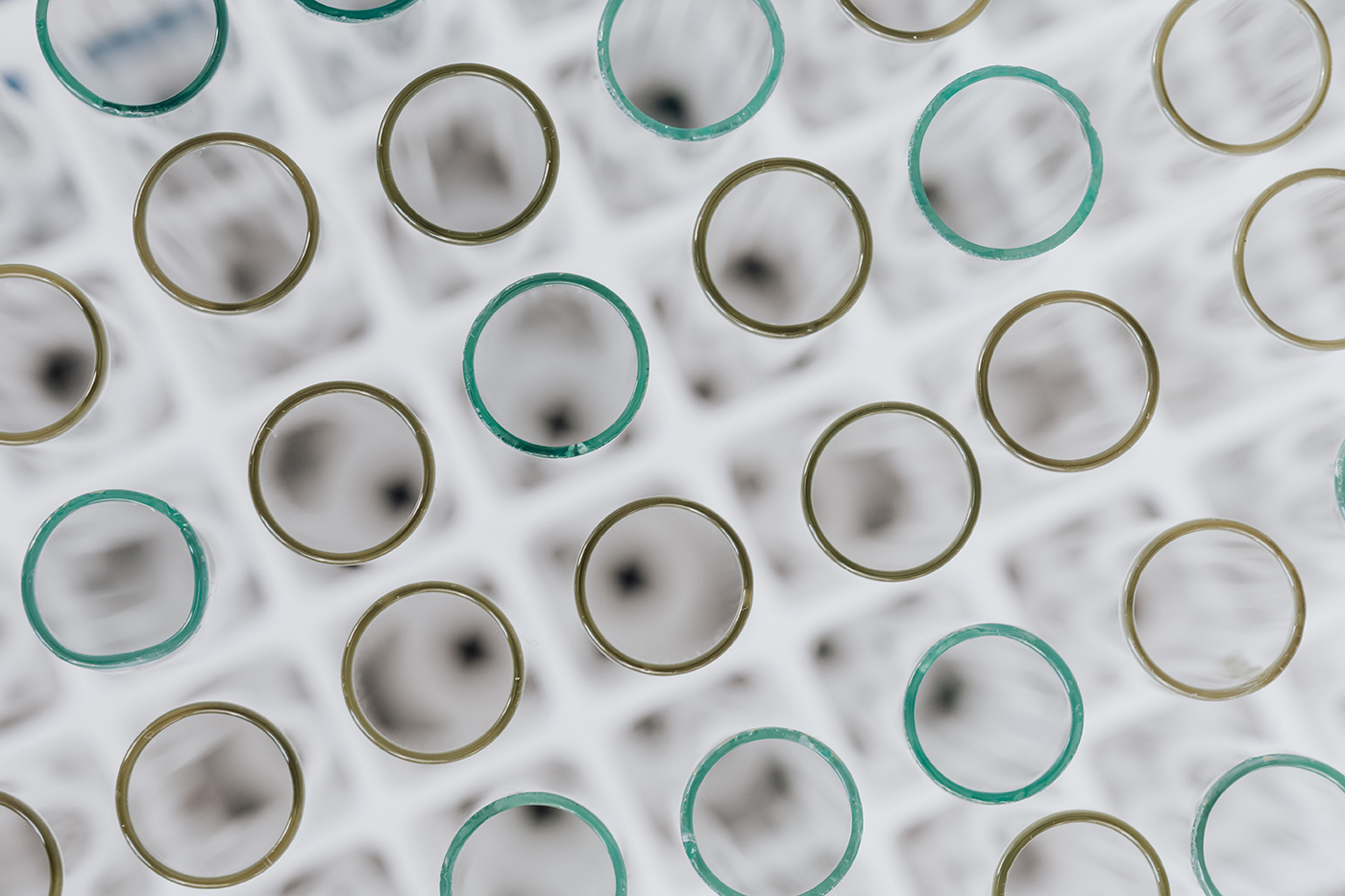
The BIOBANK Polish Collection of Microorganisms, located at the Institute of Immunology and Experimental Therapy in Wrocław, is a collection of bacterial strains and bacteriophages. It is registered with the World Federation of Culture Collections (WFCC No. 106) and with the European Culture Collections’ Organization (ECCO). The World Intellectual Property Organization (WIPO), basing its decision on the collection’s content, scientific staff and technical potential, conferred the status of International Depositary Authority (IDA) on the PCM for purposes of patent procedures.

The PCM has more than 3,000 bacterial strains in its collections, which have been collected by several generations of scientists working in the biological and medical sciences.
Biobank PCM’s mission is to acquire, preserve, and store various biological materials, followed by their distribution, analysis, and data publication. Biological resources of Biobank PCM include bacteria, fungi (including yeast), bacteriophages, human and animal cell lines, as well as human materials such as blood, serum, isolated DNA, tissues, saliva, urine, and more. All human materials are handled in compliance with applicable law and ethical standards for biobanking. The collection serves to supply bacterial strains to institutions in Poland and abroad for research and educational purposes as well as for use as reference strains. Many strains are of practical importance and are used in the biotechnology industry.
The collection’s range of services has been expanded to include carrying out species identification of microorganisms, preparing biomass, and providing consultation and training in microbiology. Since 2014, the PCM Platform (www.pcm.org.pl) has been in place with a state-of-the-art microorganism database that presents a panel of services provided by the collection. The PCM is actively involved in the European Microbial Resource Research Infrastructure (MIRRI) project included in the European ESFRI Research Infrastructure Roadmap.
Contact
Head
BIOBANK Head: Prof. Andrzej Gamian PhD, DSc (0000-0002-2206-6591)
Graduate of the Faculty of Natural Sciences, University of Wrocław (1975). Immediately after graduation, he started working at the Ludwik Hirszfeld Institute of Immunology and Experimental Therapy, PAS, where he carried out his doctoral thesis on the immunochemistry of Shigella lipopolysaccharides. He received his doctoral degree in 1982. In 1984-86, he was a research fellow at the National Research Council of Canada in Ottawa, which resulted in the development of a vaccine against meningococcal meningitis B. In 1990, he held a fellowship at the CNRS in Grenoble, France, working on the structure of the sugar part of several endotoxins. He also conducted research on bacterial antigens at Arrhenius Laboratory in Stockholm and Uppsala. In 1993, he received a postdoctoral degree (‘Lipopolysaccharides of Enterobacteriaceae containing sialic acid’) and ten years later a the title of professor from the President of Poland. In 1994, he became Head of the Department of Immunology of Infectious Diseases at IIET PAS, and in 2006, Head of the Department of Medical Biochemistry at the Medical University in Wrocław. Since July 2020, he has been the Director of IITD PAN. He is the author of more than 380 papers in national and international journals and the creator of 50 patents and patent applications. His scientific interests are mainly focused on the study of polysaccharides, construction of antibacterial and antiviral vaccines, studies of glycolipids, microbial proteins and phages, their use in diagnostics, vaccines, therapies, as well as issues of immunochemistry of probiotic polysaccharides. Important issues include protein glycation, formation of aggregates in the body, methods of determining disease markers, especially metabolic, vascular and neurodegenerative diseases.
Team
- Agnieszka Korzeniowska-Kowal PhD, deputy head of BIOBANK PCM (0000-0001-7569-8018)
- Mariola Paściak PhD, DSc, Assistant Professor – radionuclide expert (0000-0002-2603-4634)
- Anna Wzorek MSc – PCM chief specialist (0000-0002-1437-4447)
- Gabriela Cieniuch-Speruda PhD – microbiology specialist (0000-0002-8706-364X)
- Katarzyna Bzowa Eng – biotechnology specialist
- Zuzanna Dennstedt MSc – biology specialist
- Maja Kostrzewa MSc Eng – biotechnology specialist
Most important scientific achievements
- Conducting scientific collaborations with numerous scientific institutions at home and abroad, resulting in numerous scientific publications in the fields of microbiology, veterinary and medical sciences.
- Isolation, identification, characterisation, preservation and distribution of bacterial strains.
- Acceptance of patent deposits: bacteria and bacteriophages.
Research methods
- isolation and long-term preservation of bacterial strains
- identification of microorganisms using the MALDI Biotyper system
- identification of microorganisms by 16S rRNA sequencing
- microscopic analysis of bacterial preparations
Key equipment
- Freeze-dryer for preservation of bacterial material in glass ampoules
- Froilabo BMS low temperature freezer
- Scanlaf Mars Laminar
- Olympus BX43F microscope for observation under reflected and transmitted light
- BD Crystal microbial identification system
- Bio-Rad T100 thermocycler
- Bio-Rad PowerPac Basic horizontal electrophoresis system
- DeNovix Plus UV/VIS spectrophotometer
- Tetra Cell Mini-Protean Electrophoresis System, 4-Gel System Bio-Rad
- Syngene PXI Gel and Blot Documentation System
- Centrifuge HEREUS MULTIFUGE X3R
Most important projects (during the last 10 years)
- Establishment of an interoperable electronic scientific platform of the Polish Collection of Microorganisms, POIG.02.03.02-00-005/10, 01.11.2010-31.12.2014
- Establishment of immunogenetic database of Polish population MultiGenBank POIG.02.03.02-02-028/13, 01.09.2014-21.12.2015
Selected publications
- Njamkepo E., Fawal N., Tran-Dien A., Hawkey J., Strockbine N., Jenkins C., Talukder K.A., Bercion R., Kuleshov K., Kolínská R., Russell J.E., Kaftyreva L., Accou-Demartin M., Karas A., Vandenberg O., Mather A.E., Mason C.J., Page A.J., Ramamurthy T., Bizet C., Gamian A., Carle I., Sow A.G., Bouchier C., Wester A.L., Lejay-Collin M., Fonkoua M.C., Hello S.L., Blaser M.J., Jernberg C., Ruckly C., Mérens A., Page A.L., Aslett M., Roggentin P., Fruth A., Denamur E., Venkatesan M., Bercovier H., Bodhidatta L., Chiou C.S., Clermont D., Colonna B., Egorova S., Pazhani G.P., Ezernitchi A.V., Guigon G., Harris S.R., Izumiya H., Korzeniowska-Kowal A., Lutyńska A., Gouali M., Grimont F., Langendorf C., Marejková M., Peterson L.A., Perez-Perez G., Ngandjio A., Podkolzin A., Souche E., Makarova M., Shipulin G.A., Ye C., Žemličková H., Herpay M., Grimont P.A., Parkhill J., Sansonetti P., Holt K.E., Brisse S., Thomson N.R., Weill F.X.: Global phylogeography and evolutionary history of Shigella dysenteriae type 1. Nature Microbiol. 2016, 1: 16027 (https://pubmed.ncbi.nlm.nih.gov/27572446/).
- Książczyk M, Kuczkowski M, Dudek B, Korzekwa K, Tobiasz A, Korzeniowska- Kowal A, Paluch E, Wieliczko A, Bugla-Płoskońska G. Application of Routine Diagnostic Procedure, VITEK 2 Compact, MALDI-TOF MS, and PCR Assays in Identification Procedure of Bacterial Strain with Ambiguous Phenotype. Curr Microbiol. 2016 May;72(5):570-82. https://pubmed.ncbi.nlm.nih.gov/26804795/
- Król J, Wanecka A, Twardoń J, Mrowiec J, Dropińska A, Bania J, Podkowik M, Korzeniowska-Kowal A, Paściak M. Isolation of Staphylococcus microti from milk of dairy cows with mastitis. Vet Microbiol. 2016 Jan 15;182:163-9. https://pubmed.ncbi.nlm.nih.gov/26711044/
- Korzeniowska-Kowal A, Kochman A, Gamian E, Lis-Nawara A, Lipiński T, Seweryn E, Ziółkowski P, Gamian A. Antibodies against Escherichia coli O24 and O56 O-Specific Polysaccharides Recognize Epitopes in Human Glandular Epithelium and Nervous Tissue. PLoS One.;10(6):e0129492, 2015 https://pubmed.ncbi.nlm.nih.gov/26086646/
- Zdziarski P, Paściak M, Rogala K, Korzeniowska-Kowal A, Gamian A. Elizabethkingia miricola as an opportunistic oral pathogen associated with superinfectious complications in humoral immunodeficiency: a case report. BMC Infectious Diseases 2017; 17:763, DOI 10.1186/s12879-017-2886-7.

